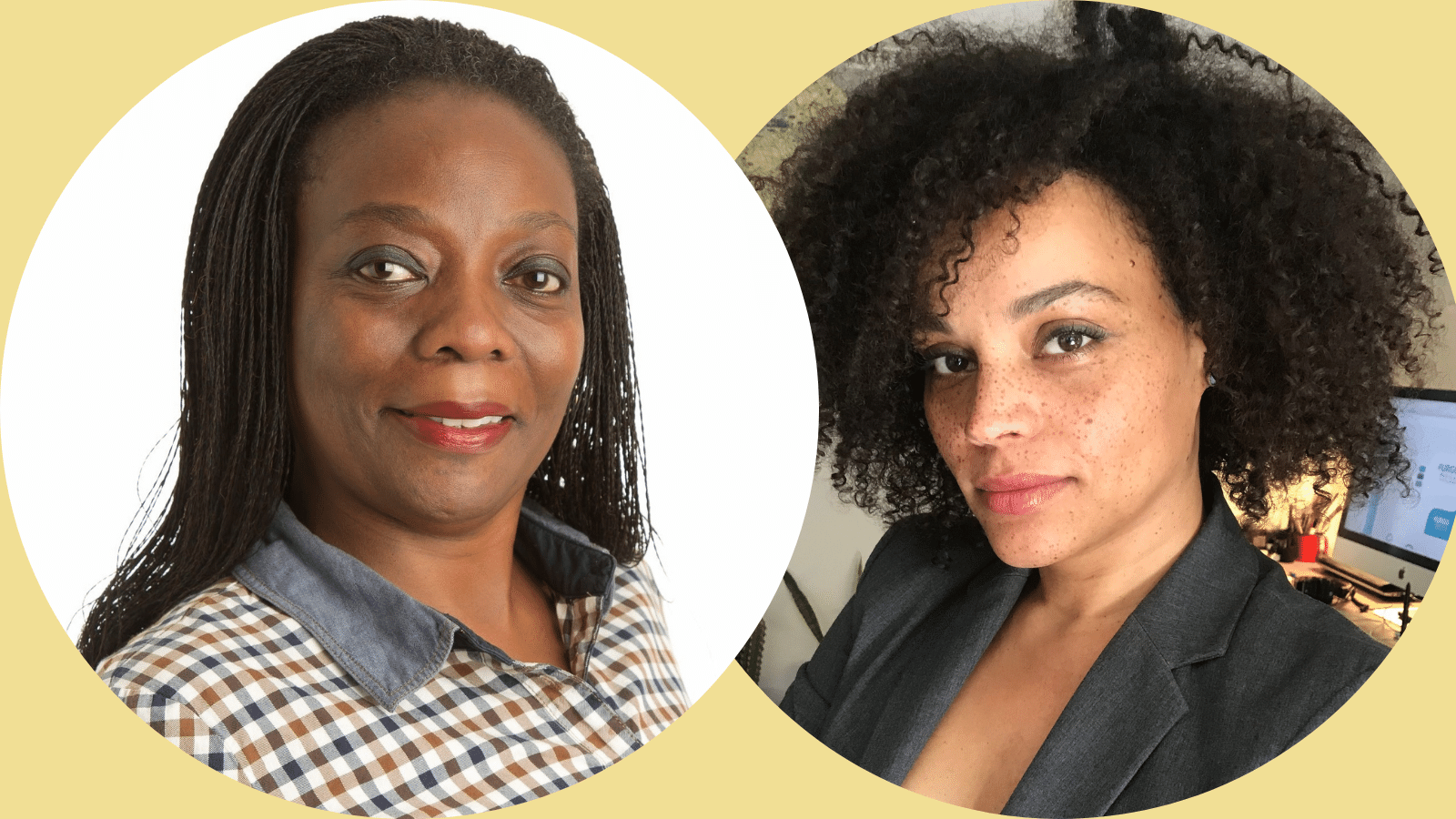CEMAC panel interview series: Marie-Pierre NYATANYI and Isabelle CUISENIER-KOUZOU
Welcome to our interview series featuring the CEMAC advisory panel. Each week, we’ll share insights from panelists on women's financial inclusion and consumer protection — and the role of public policy in creating better conditions within their regions.
This week, we hear from to Marie-Pierre NYATANYI from Cameroon and Belgium and Isabelle CUISENIER-KOUZOU from the Central African Republic:
Marie-Pierre NYATANYI works to promote the active participation of women in socio-political and economic activities. More specifically, she works to strengthen the leadership of African women in all fields, through information, training, and support for income-generating activities while taking into account the context in which these women operate.
Isabelle CUISENIER-KOUZOU works for the development of technical skills of women in business management and the development of productive activities in the form of a cooperative. She promotes the adoption of digital financial management systems among women in the Central African Republic.
Question 1: What do you think are the most important barriers to financial inclusion for women in your region?
Marie-Pierre NYATANYI (MPN): The three most important barriers to the financial inclusion of women are information, training and the conditions of access to financial instruments.
Indeed, women have a lack of information about the world of finance, wrongly considered to be a man's world. Its operation, its advantages and disadvantages must be popularized.
They have a certain financial intelligence because although they are mostly in the informal sector, they create and manage businesses. They must, however, be trained in modern management tools.
The conditions of access to financial institutions are a significant factor of exclusion. In the case of Cameroon for example, apart from the other required conditions, opening a bank account costs 100,000 XAF (around 150 €) in a bank and 50,000 XAF (around 75 €) in a microfinance institution, a considerable sum for women whose starting capital sometimes does not reach this sum.
Isabelle CUISENIER-KOUZOU (ICK): The biggest barriers include low levels of education among women, which can result in little creativity or innovation in the economic activities undertaken by women. The low financial power of rural women that results from these situations does not facilitate their financial inclusion. In fact, they often lack the self-confidence to undertake work on a larger scale.
Question 2: Why is consumer protection important, especially for women?
MPN: Most of the abuses observed stem either from a lack of instruments to protect consumers' rights, or from a lack of awareness of these instruments.
Women generally find it difficult to assert their rights (lack of knowledge, social and cultural constraints, etc.) It is therefore important that their capacities in this direction be strengthened so that they can act as enlightened consumers and that they can defend themselves if necessary.
ICK: The lack of interest, information and skills for most rural women and being out-of-step with current events or progress in the field leads to women's fragility in the consumption of financial services.
Consumer protection actually has a dual role. Consumer health and safety and also the regulation or even limitation of the prices of goods and services by the competent services. Illiteracy does not help them to understand the concepts of general conditions of sale or to identify situations of abuse.
Question 3. How can you effectively advocate for public policies and regulations that consider the needs of women?
MPN: The various advocacy actions to be put in place must emphasize the added value for communities and societies when we prioritize the needs of women. This awareness must start with the women themselves.
ICK: Set up an advocacy committee involving several parties including women parliamentarians, business and civil society women and rural women. Initiate activity cooperatives with a pooled approach to services in order to facilitate good practices, accelerate peer learning, organize practice analyzes to boost ownership and share the results with political decision-makers.
The next few months
As the Panel continues its work over the next few months, we hope to support the participants in translating their insights and experiences into work that can be taken up by public sector decision-makers.
If you have ideas from how to improve women’s financial inclusion in the CEMAC region, please don’t hesitate to contact us.
Authors
Alexis Ditkowsky

